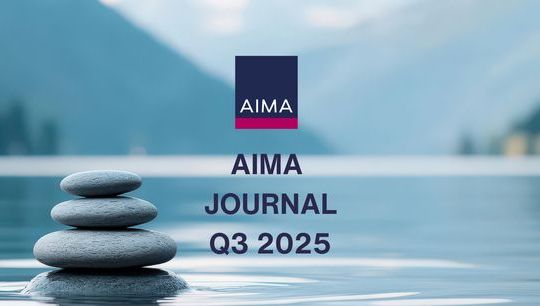Real estate insights: Europe’s market dynamics
By Sven Eggers, State Street
Published: 24 November 2025
Navigating investment strategies for European real estate
In recent years, real estate has borne the brunt of rising interest rates and muted economic growth in Europe.
The growing trend of remote work, powered by a proliferation of technologies has created unique structural challenges for property. Conversely, government-backed infrastructure and new industrial strategies to bolster core economic sectors have significantly uplifted other private assets.
And these market dynamics are starting to have an effect on investors’ asset allocation plans over the past couple of years. For example, when we surveyed private markets globally last year, real estate was the only sub-asset class respondents were planning to decrease allocations to in the near term.
However, some trends are emerging that could support renewed investment in the asset class in the coming years, based on our latest research:
- Regional variations are emerging in asset allocation intentions, with investors developing a growing focus on their home region property opportunities, and developed Europe in particular gathering increased interest from investors globally
- The asset class stands to benefit from the growth of semi liquid funds and other vehicles aimed at individual investors bringing new flows into the sector
- Emerging technology, in particular Generative Artificial Intelligence (GenAI) and Large Language Models (LLM) have significant applications for real estate investment operations, enhancing efficiencies and improving access to the asset
Firstly, there are some signs of improved sentiment from our asset allocation data. As mentioned, in 2024, only 45% of respondents planning to increase exposure to property over one to two years, while 55% were selling.
In this year’s survey, we modified our methodology slightly, allowing respondents to select “no change” as an option in describing their real estate investment plans.
Interestingly, “no change” was the most popular option among European respondents, with 47% not planning to alter their real estate exposures. However, there was a slightly positive outlook for the asset class in that more institutions (31%) were planning increased investment than were decreasing (22%).
This is the first among a pattern of responses in our latest research that indicates there could be cause for a tentative sense of optimism around European real estate.
The local perspective
Globally institutional investors see developed Europe as a prime real estate destination. In particular, among those planning property investment, developed Europe was the most popular area for 54% of respondents, up from just 42% in 2024. In this it leapfrogged North America, which was a destination for 49%, reasonably consistent with last year’s 46%.
The other key regional trend to observe is growing home region bias. While global investment intentions towards North American property are holding fairly steady, North American LPs are significantly more likely to invest domestically in the asset class (80% plan to do so, compared to 69% previously). And Developed Europe benefits from this tendency too, with three quarters of LPs from the continent exploring opportunities in Western Europe specifically, also an increase on last year (62%).
European investors planning increased allocations to this market are primarily attracted by yield or returns, with portfolio diversification and hedging against macro risks also high on their list of reasons.
Democratisation
GPs have long been interested in the potential for increasing flows into private markets asset classes from high-net-worth individual investors and wealth management distribution channels. And expectations are heightening for increased uptake of these products in Europe.
A little over half of European institutions expect at least half, if not more, private markets flows to come through retail style fund wrappers in as little as two years.
This has positive implications for real estate, which a tenth of respondents thought was the single most likely asset class to benefit from the trend, on grounds of ease of securitisation and investor familiarity.
Emerging Technology
European respondents were also more likely than their peers in other regions to leverage generative artificial intelligence (GenAI) in real estate investment data and operations.
A third (36%) said it was among the asset classes where GenAI was proving most useful in converting unstructured information into structured data, compared to only 27% of North American respondents and 32% in Asia Pacific (APAC).
As we’ve reported in previous publications based on this research, private markets are seeing a slowdown in investment volumes coterminously with a heightened focus on deal quality and improved use of this technology is also core to managers’ enhanced focus on deal diligence, and investors’ on manager diligence.
Conclusion
Amid the structural headwinds faced by real estate, the imperative is clear: find the right new opportunities, prioritise market selection and sector focus, and institutionalise next generation technologies to lead with confidence.
Download our annual private markets study here for more insights.
Disclaimer:
The material presented herein is for informational purposes only. The views expressed herein are subject to change based on market and other conditions and factors. The opinions expressed herein reflect general perspectives and information and are not tailored to specific requirements, circumstances and/or investment philosophies. The information presented herein does not take into account any particular investment objectives, strategies, tax status or investment horizon. It does not constitute investment research or investment, legal, or tax advice and it should not be relied on as such. It should not be considered an offer or solicitation to buy or sell any product, service, investment, security or financial instrument or to pursue any trading or investment strategy. It does not constitute any binding contractual arrangement or commitment of any kind. State Street is not, by virtue of providing the material presented herein or otherwise, undertaking to manage money or act as your fiduciary.
You acknowledge and agree that the material presented herein is not intended to and does not, and shall not, serve as the primary basis for any investment decisions. You should evaluate and assess this material independently in light of those circumstances. We encourage you to consult your tax or financial advisor.
All material, including information from or attributed to State Street, has been obtained from sources believed to be reliable, but its accuracy is not guaranteed and State Street does not assume any responsibility for its accuracy, efficacy or use. Any information provided herein and obtained by State Street from third parties has not been reviewed for accuracy. In addition, forecasts, projections, or other forward-looking statements or information, whether by State Street or third parties, are not guarantees of future results or future performance, are inherently uncertain, are based on assumptions that, at the time, are difficult to predict, and involve a number of risks and uncertainties. Actual outcomes and results may differ materially from what is expressed herein. The information presented herein may or may not produce results beneficial to you. State Street does not undertake and is under no obligation to update or keep current the information or opinions contained in this communication.
To the fullest extent permitted by law, this information is provided “as-is” at your sole risk and neither State Street nor any of its affiliates or third party providers makes any guarantee, representation, or warranty of any kind regarding such information, including, without limitation, any representation that any investment, security or other property is suitable for you or for others or that any materials presented herein will achieve the results intended. State Street and its affiliates and third party providers disclaim any warranty and all liability, whether arising in contract, tort or otherwise, for any losses, liabilities, damages, expenses or costs, either direct, indirect, consequential, special or punitive, arising from or in connection with your access to and/or use of the information herein. Neither State Street nor any of its affiliates or third party providers shall have any liability, monetary or otherwise, to you or any other person or entity in the event the information presented herein produces incorrect, invalid or detrimental results.
To learn how State Street looks after your personal data, visit: https://www.statestreet.com/utility/privacy-notice.html. Our Privacy Statement provides important information about how we manage personal information.
No permission is granted to reprint, sell, copy, distribute, or modify any material herein, in any form or by any means without the prior written consent of State Street.
State Street Corporation
One Congress Street, Boston, MA 02114-2016
@2025 State Street Corporation and/or it’s applicable third-party licensor
All Rights Reserved
8496496.1.1.GBL.
GPs have long been interested in the potential for increasing flows into private markets asset classes from high-net-worth individual investors and wealth management distribution channels.
And expectations are heightening for increased uptake of these products in Europe.







